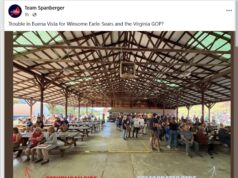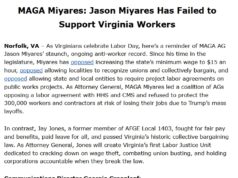
Two events last week reassured the Occupy moment of its effectiveness. The first, and most covered, was the President's much-ballyhooed speech in Osawatomie, Kansas on December 6th; he echoed a number of themes present in the “New Nationalism” speech given in the same town by President Theodore Roosevelt as he prepared to run for a 3rd term under the Progressive Party banner. Both speeches spoke of a desire to end the pay-to-play, business interest-dictated behavior in Washington. While this represented a new level of thinking for the evolving politics of TR at the time, it hearkened back to speeches from the 2008 campaign trail for Obama. It wasn't anything terribly new, in this respect.
What has gotten the most play in the media has been the direct nature in which the President addressed issues of income inequality in the speech. He made the case that income inequality hurts us all. When the old columns that held up Fordism (the ability for workers to buy the products or services they produce) and the few elements of the welfare state that we have here collapse, we end up with a nation that serves the interests of the top 1% as opposed to the other 99% of us.
Now, hold on a second. Does this mean Obama gets the central tenant of Occupy Wall Street and its kindred movements? To the extent that OWS has defined its central tenants (disclosure: I have been a fierce critic of the unwillingness, deliberately or not, to formulate a political program for OWS), it does seem to be articulating a clear belief that income inequality hurts us all. And Obama’s speech doesn't come at a time when the Occupy movement is enjoying runaway success in the eyes of the mainstream media. What media sympathy the movement might have had at the start has dissipated, not due to a dislike for the message, but rather due to confusion by the masses of Americans who haven't “Occupied” as to what the motives of the movement are. All they've seen recently are the pictures of the park evictions, the pepper spray, and, if you live in the Washington, DC area, destruction of one small house.
This brings us to the second important, symbolic event of the last week. For the uninitiated: Occupy DC has been set up in a park supervised by the National Parks Service since early October. The site has been covered with tents for most of its life as a flashpoint in DC and American politics. The DC City Council has supported the occupation, and the NPS has largely left the alone. However, at some point last week, it was decided that Occupy DC would have to leave its park, much like Occupy Wall Street and many other Occupies before it. But by the time this decision was made, Occupy DC had entered a new phase: a house (or fort, or shelter, depending on who you ask) had been constructed on the site by Occupiers. Negotiations with building inspectors failed; a General Assembly Meeting to discuss the immediate future of the Occupation produced only allowance for “autonomous actions” by individuals who wished to make a statement in the face of the coming raid. Subsequently, police descended, and the structure would come down. Prior to this- there was a stand-off. Some Occupiers remained on the roof of the structure, refusing to leave, with one guy apparently remaining on top for 8 hours. Police finally had to pull them off using a cherry picker. What did all of this accomplish? What did it mean?
Some have theorized that this was meant to draw attention to the foreclosure and eviction crises happening daily in our neighborhoods. Others, including Dave Weigel of Slate.com (an even handed guy, despite being a former Reason magazine correspondent) have labeled it, simply, performance art. It's hard not to see much of this event as such. There was the house built in a National Park. One guy peed off the side of the house (some witnesses say it was because he legitimately had to go). Another shook his ass at the police for some time. Another was apparently well-known as a guy who once circumsized himself for a public art installation. I'm sure plenty of people disagree with the characterization of this event as performance art, but to the casual observer, it was at best “autonomous action” artwork, and at worst a collective freakout by a bunch of hippies. Do I wish people saw it as some sort of statement on housing issues? Sure, if that's what Occupy wanted to portray. But it's not important at this point.
If Occupy is to continue to be a cultural phenomenon with a political conscious, it's going to have to move out of the parks and play to its momentum. The conversation has been completely flipped. There was no expensive ad campaign. No barnstorming politicians. There was a Canadian magazine, but how many people showed up in these parks because of them and not because of the 99% message? It's that message that has become for our political discourse what debt and deficits were this past summer during the Debt Ceiling Crisis. The president has now given a major speech centered on that theme, one that will probably go into the archives next to his one from the 2004 DNC. Occupy didn't have a political program or a set of demands, but it had a message. That message is at the core of our political discourse (as long as we can peel people away from “shocking” entertainment-news like Michelle Bachman's latest thoughts on the gays or how Muppets are communist or whatever else bored Fox producers shove on us), and if the park phase, where the 99% message started, is over, then it's time to declare victory.
Even if Occupy heroically survives the cold winter, the story won't be the message, it will be the spectacle. The spectacle brings attention, much like the Occupy DC performance art, but the message will still be the same regardless. Continuing on as performance art risks turning Occupy into a new Yippie movement. I loved the Yippies for their sheer guts and sense of humor, but they were the comic wing of a larger New Left, and the New Left was collectively despised (or at ignored) by Middle America, blue collar joes, white collar stiffs, suburban housewives, rednecks, and the fracturing working and middle class of the early 1970s. In other words, most of the 99% didn't stand them. Before Occupy loses this moment in the sun, where even a president who very well could have taken December 6th to raise money from Goldman Sachs, rather than to channel the early 20th century Progressive, it's time to declare victory on the major central tenant of the 99% movement and move on to the next phase.





![Monday News: Trump’s Lunacy Pushes China, Russia, India, etc. Together; “Happy Labor Day. Donald Trump and Elon Musk Are Screwing Workers.”; “Where is the [media’s] intense focus on Trump’s failing health?”; ““Trump says he is not a dictator. Isn’t he?”](https://bluevirginia.us/wp-content/uploads/2025/09/montage0901-238x178.jpg)








![Monday News: Trump’s Lunacy Pushes China, Russia, India, etc. Together; “Happy Labor Day. Donald Trump and Elon Musk Are Screwing Workers.”; “Where is the [media’s] intense focus on Trump’s failing health?”; ““Trump says he is not a dictator. Isn’t he?”](https://bluevirginia.us/wp-content/uploads/2025/09/montage0901-100x75.jpg)